What to Do After a DWI
July 9, 2025
Being charged with Driving While Impaired (DWI) in North Carolina is a very serious matter, but knowing your rights and the proper next steps can help protect you.
Your rights:
Under the North Carolina Constitution and state law, anyone arrested for DWI has the right to be informed of the charges against them, to confront witnesses, and to have legal counsel for their defense. You also have a right to remain silent and not incriminate yourself.
As soon as you are arrested, the officer must advise you of your right to make a phone call – typically allowing you a reasonable time to contact a lawyer or family member. During questioning, you cannot be forced to answer questions without an attorney present. North Carolina’s “Implied Consent” law requires officers to inform you that you can refuse chemical testing, but doing so triggers license penalties.
If you do agree to undergo a breath or blood test, you are entitled to have an attorney present and even to obtain an independent chemical analysis at your own expense. You have the right to a formal administrative hearing before the DMV if your license is revoked (for example, after refusing a test).
In short, exercise your right to counsel, remain silent during interrogation, and remember that anything you say can be used against you
Immediate Steps After a DWI Arrest
Once you’re released from custody, you will want to take swift action. Contact an experienced DWI attorney immediately. An attorney can guide you through bail procedures and court dates. At the initial court appearance, you will enter a plea and learn your charges. Your lawyer can also petition for a bond reduction if you are still in custody.
Protect your driving privileges: If your breath or blood test was 0.08% or higher, or if you refused testing, North Carolina law subjects you to an immediate civil revocation of your driver’s license for 30 days. If you refuse testing, the license will be revoked for at least one year by the DMV. You can request an administrative hearing (within about 30 days of the notice) to challenge a refusal, and your lawyer can help arrange this.
After 10 days of a 30-day revocation, you may be eligible to apply for a Limited Driving Privilege (LDP) under strict conditions (for work, medical treatment, schooling, etc.). Ask your attorney about an LDP or any restricted license options. Also, notify your employer or others who require your valid license, as a suspension may affect your job if driving is part of it.
North Carolina Court Process and Penalties
DWI cases in North Carolina are typically heard in District Court. A DWI conviction is a misdemeanor under N.C. law, but penalties can be severe, especially with aggravating factors or prior offenses.
At trial or plea, the judge will determine punishment levels based on factors like blood alcohol content (BAC), prior DWI history, and other circumstances. For a first-offense DWI without aggravating factors (level Five offense), the law requires at least 24 hours of jail time, which can be completed via community service. In addition, these cases typically carry a suspended sentence of up to 60 days plus fines up to $200.
If there were aggravating factors – for example, a very high BAC (over 0.15%) or reckless driving – the judge may impose higher levels of punishment. In mid-range cases (level Four or Three), punishment can include 48–72 hours of minimum jail time(up to 120 days or 6 months) and fines up to $500.
In the most severe misdemeanor cases (Aggravated Level One), there is a minimum sentence of one year, a maximum of three years in jail, and up to $10,000 in fines. Throughout sentencing, the court will also typically order substance-abuse assessment and treatment as a condition of probation or license reinstatement.
If you are charged with a second DWI within seven years or certain other aggravators may lead to longer sentences. Four or more DWI convictions within 10 years will trigger habitual impaired driving, a Class F felony where the defendant must serve a minimum 12 months in prison (with no suspension) and faces permanent loss of license.
Similarly, any DWI that results in serious injury or death can be charged as a felony and carry significant prison sentences. In all cases, judges may impose additional conditions like community service, alcohol monitoring, or mandatory sobriety as part of special probation.
Because DWI laws are complex, your attorney will fight to minimize aggravating factors and any jail time.
DMV License Suspension and Reinstatement
A DWI conviction triggers automatic license revocation by the NC DMV, separate from the criminal case.
Under state law, a first DWI leads to a one-year revocation; a second DWI (within 7 years) means four years; and a third DWI (or more) means permanent revocation.Refusing a chemical test carries its own one-year revocation.
After your revocation period ends, you can apply to restore driving privileges. Before DMV will reinstate any license, North Carolina requires that you complete a certified DWI substance-use assessment and the resulting recommended program. The court or DMV will give you instructions on approved providers. Once you’ve finished the required program, you must file the certificate of completion with the DMV.
Also note: any DWI convictions with a BAC over .15 will impose an ignition interlock requirement when your license is restored. By statute, if your revocation was one year (first-offense DWI), you must have an approved ignition interlock device for one year after getting your license back; a four-year revocation (second offense) requires three years of interlock.
In short, plan on your license being suspended for a significant time after any DWI – work with your attorney to get a limited privilege if necessary, and complete all DMV steps to restore your driving rights legally.
Long-Term Consequences of a DWI Conviction
Even after you serve your sentence, a DWI conviction can have lasting effects. A DWI stays on your criminal record permanently, which means future employers, landlords, and licensing agencies will see it on background checks. This can make it harder to get jobs, especially those requiring driving or security clearances. Certain professions (commercial driving, aviation, law enforcement, healthcare, education, etc.) may deny licensure after a DWI.
Your driver’s license may face additional restrictions: for example, a commercial driver must surrender their CDL for a DWI.
Your Insurance costs will rise dramatically – North Carolina’s Safe Driver law assigns 12 insurance points for DWI, resulting in about a 340% premium increase for three years. Standard auto coverage may even be dropped if you decline interlock or fail to notify the insurer. Other impacts include higher life insurance rates and potential travel or immigration complications (many countries and visa applications look unfavorably on DUI/DWI convictions).
If the DWI caused an accident or injury, you could also face civil liability or higher restitution orders.
In short, the ripple effects of a DWI can touch every part of life, so it is vital to have strong legal representation to minimize the conviction’s impact and to comply with all court and DMV requirements going forward.
Taking action now can protect your future
The Law Office of Daniel McCrorie understands North Carolina DWI laws and can guide you through each step – from your first court date through license reinstatement. Don’t face this alone.
Contact Daniel McCrorie Law today and let our experienced team fight for your rights.
